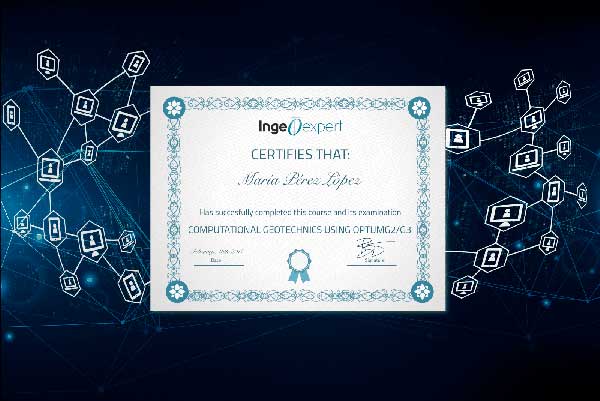Hydrogen energy technologies
Online course |
|
50 hours / 6 weeks |
|
|
Dates: 17th of June to 29th of July |
| Standard | Unemployed Or Student |
| $302 | $216 |
Introduction
“Hydrogen has a key role to play in reaching our global decarbonization goals by helping to diversify energy sources worldwide; foster business and technological innovation as drivers for long-term economic growth; and decarbonize hard-to-abate sectors.” Hydrogen Council
Established in 2017 at the World Economic Forum in Davos, Switzerland, the Hydrogen Council is a global CEO-led initiative with a united vision and long-term ambition for hydrogen energy to foster the clean energy transition. Using its global reach to promote collaboration between governments, industry and investors, the Hydrogen Council provides guidance on accelerating the deployment of hydrogen energy solutions around the world. The Hydrogen Council acts as a business marketplace, a resource for safety standards and an interlocutor for the investment community.
“There’s no climate solution without clean hydrogen. And there’s no clean hydrogen without action.”
In this course, students will learn about a broad range of ‘actions’ using hydrogen energy technologies, including hydrogen production, transport, storage and utilization in stationary, transportation and industrial applications. Specific case studies include remote, open-pit surface mining operations.
Objectives
-
- Understand the role of hydrogen energy technologies.
- How to evaluate performance characteristics of hydrogen fuel cells, engines and gas turbines.
- How to assess conceptual designs of remote microgrids with energy storage systems.
- How to create renewable energy solutions for remote construction and mining operations.
- How to optimize hydrogen fuel cell electric-drive powertrains for mining haul trucks.
Week 1: Introduction
Introduction to ‘Green Hydrogen’ as a critical enabler for the global transition to a sustainable energy and net-zero emissions economy
Introduction to hydrogen energy systems
-
- – Hydrogen production
- – Hydrogen transport and storage
- – Hydrogen utilization in stationary, transport, and industrial applications
Week 2: Hydrogen Production Technologies
Production from renewable energy
-
- * Water Splitting via electrolysis
- – Alkaline electrolyzers
- – Solid oxide electrolyzers
- – Proton-exchange membrane electrolyzers
- * Water Splitting via electrolysis
Production from fossil fuels
-
-
-
- *Hydrocarbons reforming
- – Steam reforming
- – Partial oxidation
- – Autothermal reforming
- *Hydrocarbons reforming
-
-
Week 3: Stationary Power Systems for Remote Sites
Review hydrogen-fueled electric generators
-
-
-
- – Polymer electrolyte membrane (PEM) fuel cells
- – Alkaline Fuel Cells (AFC)
- – Phosphoric Acid Fuel Cells (PAFC)
- – Molten Carbonate Fuel Cells (MCFC)
- – Solid Oxide Fuel Cells (SOFC)*Direct energy conversion devices: fuel cells
- *Indirect energy conversion devices: internal combustion engines and gas turbines
-
-
Case studies of hydrogen-fueled electric generators
Week 4: Microgrid Applications
Review applications of microgrids as a localized group of sources and loads of electricity that can operate autonomously
Review applications of autonomous remote microgrids using renewable energy with a hybrid energy storage system via both electrical battery and hydrogen energy storage systems
Case Studies of Remote Microgrids using renewable energy
Week 5: Case Study of Surface Mining Operations
Review the concept of surface, open-pit mining operation:
-
-
-
- – System integration of renewable energy with energy storage systems
- – Infrastructure for zero-emission mining vehicles
-
-
Case study of hydrogen fuel cell electric-drive mining haul trucks
Week 6: Project
Proposed sustainable competitive solutions for a selected application
Evaluation and review of proposed solutions
John W. Sheffield
Professor Sheffield is a professor of engineering technology at Purdue University in West Lafayette, Indiana, USA and a Professor Emeritus of Mechanical and Aerospace Engineering from Missouri University of Science and Technology in Rolla, Missouri, USA. He received his undergraduate degree in engineering science from the University of Texas at Austin and his master’s and Ph.D. in Engineering Science & Mechanics from North Carolina State University in 1975.
Professor Sheffield has a broad base of professional experience in energy technologies. He served as one of the founding associate directors at the United Nations Industrial Development Organization – International Centre for Hydrogen Energy Technologies (UNIDO-ICHET) during their first two years of operation in 2005-2006.
Professor Sheffield is the President of the International Association for Hydrogen Energy and the Senior Associate Editor of the International Journal of Hydrogen Energy published by Elsevier.
Professor Sheffield is as a part-time Professor at Xi’an Jiaotong University in Xi’an, China with the School of Energy and Power Engineering on hydrogen energy technologies and teaches in the annual International Summer School offered by the Chinese State Key Laboratory of Multiphase Flow in Power Engineering.
In 2022 Professor Sheffield became a member of the Advisory Board of the Italian “H2 JRP – Hydrogen Joint Research Platform” and received the Outstanding Leadership in Globalization Award from Purdue University.
The course is delivered online through our easy-to-use Virtual Campus platform. For this course, a variety of content is provided including:
– eLearning materials
– Videos
– Interactive multimedia content
– Live webinar classes
– Texts and technical articles
– Case studies
– Assignments and evaluation exercises
We regularly update this course to ensure the latest news and state-of-the-art developments are covered, and your knowledge of the subject is current.
Live webinars form part of our course delivery. These allow students and tutors to go through the course materials, exchange ideas and knowledge, and solve problems together in a virtual classroom setting. Students can also make use of the platform’s forum, a meeting point to interact with tutors and other students.
The tutoring system is managed by email. Students can email the tutor with any questions about the course and the tutor will be happy to help.
This course is designed to provide a broad understanding of the role of the emerging hydrogen energy technologies for applications at a remote construction site or a surface mining operation. Hence, this course is of interest to mining engineers, consultants, university students and other professionals from a variety of civil, mechanical, electrical and energy engineering backgrounds.
The course content is suitable as an introduction to the integration of on-site renewable energy systems with hydrogen energy technologies used for zero-emission electric power generation and fuel cell electric-drive powertrains for heavy-duty, off-road construction and mining vehicles.
Once a student finishes the course and successfully completes the assignments and evaluation tests, they are sent an accreditation certificate. The certificate is issued by Ingeoexpert to verify that the student has passed the course. It is a digital certificate that is unique and tamper-proof – it is protected by Blockchain technology. This means it is possible for anyone to check that it is an authentic, original document.
You will be able to download the certificate in an electronic format from the Virtual Campus platform. The certificate can be forwarded by email, shared on social networks, and embedded on websites. To see an example, click here.
This course is designed to help participants to join the fast-growing renewable energy job markets, especially with the integration of green hydrogen produced by splitting water by electrolysis using excess renewable electricity. After completing this course, the learners are able to evaluate the key performance metrics of hydrogen energy technologies, used in the selection of the most appropriate type of electrolyzers and hydrogen fuel cells for specific applications ranging from stationary microgrid to hydrogen powered, electric-drive mining trucks.
The course content is suitable as an introduction to the integration of on-site renewable energy systems with hydrogen energy technologies used for zero-emission electric power generation and fuel cell electric-drive powertrains for heavy-duty, off-road construction and mining vehicles.
Introduction
“Hydrogen has a key role to play in reaching our global decarbonization goals by helping to diversify energy sources worldwide; foster business and technological innovation as drivers for long-term economic growth; and decarbonize hard-to-abate sectors.” Hydrogen Council
Established in 2017 at the World Economic Forum in Davos, Switzerland, the Hydrogen Council is a global CEO-led initiative with a united vision and long-term ambition for hydrogen energy to foster the clean energy transition. Using its global reach to promote collaboration between governments, industry and investors, the Hydrogen Council provides guidance on accelerating the deployment of hydrogen energy solutions around the world. The Hydrogen Council acts as a business marketplace, a resource for safety standards and an interlocutor for the investment community.
“There’s no climate solution without clean hydrogen. And there’s no clean hydrogen without action.”
In this course, students will learn about a broad range of ‘actions’ using hydrogen energy technologies, including hydrogen production, transport, storage and utilization in stationary, transportation and industrial applications. Specific case studies include remote, open-pit surface mining operations.
Objectives
-
- Understand the role of hydrogen energy technologies.
- How to evaluate performance characteristics of hydrogen fuel cells, engines and gas turbines.
- How to assess conceptual designs of remote microgrids with energy storage systems.
- How to create renewable energy solutions for remote construction and mining operations.
- How to optimize hydrogen fuel cell electric-drive powertrains for mining haul trucks.
Week 1: Introduction
Introduction to ‘Green Hydrogen’ as a critical enabler for the global transition to a sustainable energy and net-zero emissions economy
Introduction to hydrogen energy systems
-
- – Hydrogen production
- – Hydrogen transport and storage
- – Hydrogen utilization in stationary, transport, and industrial applications
Week 2: Hydrogen Production Technologies
Production from renewable energy
-
- * Water Splitting via electrolysis
- – Alkaline electrolyzers
- – Solid oxide electrolyzers
- – Proton-exchange membrane electrolyzers
- * Water Splitting via electrolysis
Production from fossil fuels
-
-
-
- *Hydrocarbons reforming
- – Steam reforming
- – Partial oxidation
- – Autothermal reforming
- *Hydrocarbons reforming
-
-
Week 3: Stationary Power Systems for Remote Sites
Review hydrogen-fueled electric generators
-
-
-
- – Polymer electrolyte membrane (PEM) fuel cells
- – Alkaline Fuel Cells (AFC)
- – Phosphoric Acid Fuel Cells (PAFC)
- – Molten Carbonate Fuel Cells (MCFC)
- – Solid Oxide Fuel Cells (SOFC)*Direct energy conversion devices: fuel cells
- *Indirect energy conversion devices: internal combustion engines and gas turbines
-
-
Case studies of hydrogen-fueled electric generators
Week 4: Microgrid Applications
Review applications of microgrids as a localized group of sources and loads of electricity that can operate autonomously
Review applications of autonomous remote microgrids using renewable energy with a hybrid energy storage system via both electrical battery and hydrogen energy storage systems
Case Studies of Remote Microgrids using renewable energy
Week 5: Case Study of Surface Mining Operations
Review the concept of surface, open-pit mining operation:
-
-
-
- – System integration of renewable energy with energy storage systems
- – Infrastructure for zero-emission mining vehicles
-
-
Case study of hydrogen fuel cell electric-drive mining haul trucks
Week 6: Project
Proposed sustainable competitive solutions for a selected application
Evaluation and review of proposed solutions
John W. Sheffield
Professor Sheffield is a professor of engineering technology at Purdue University in West Lafayette, Indiana, USA and a Professor Emeritus of Mechanical and Aerospace Engineering from Missouri University of Science and Technology in Rolla, Missouri, USA. He received his undergraduate degree in engineering science from the University of Texas at Austin and his master’s and Ph.D. in Engineering Science & Mechanics from North Carolina State University in 1975.
Professor Sheffield has a broad base of professional experience in energy technologies. He served as one of the founding associate directors at the United Nations Industrial Development Organization – International Centre for Hydrogen Energy Technologies (UNIDO-ICHET) during their first two years of operation in 2005-2006.
Professor Sheffield is the President of the International Association for Hydrogen Energy and the Senior Associate Editor of the International Journal of Hydrogen Energy published by Elsevier.
Professor Sheffield is as a part-time Professor at Xi’an Jiaotong University in Xi’an, China with the School of Energy and Power Engineering on hydrogen energy technologies and teaches in the annual International Summer School offered by the Chinese State Key Laboratory of Multiphase Flow in Power Engineering.
In 2022 Professor Sheffield became a member of the Advisory Board of the Italian “H2 JRP – Hydrogen Joint Research Platform” and received the Outstanding Leadership in Globalization Award from Purdue University.
The course is delivered online through our easy-to-use Virtual Campus platform. For this course, a variety of content is provided including:
– eLearning materials
– Videos
– Interactive multimedia content
– Live webinar classes
– Texts and technical articles
– Case studies
– Assignments and evaluation exercises
We regularly update this course to ensure the latest news and state-of-the-art developments are covered, and your knowledge of the subject is current.
Live webinars form part of our course delivery. These allow students and tutors to go through the course materials, exchange ideas and knowledge, and solve problems together in a virtual classroom setting. Students can also make use of the platform’s forum, a meeting point to interact with tutors and other students.
The tutoring system is managed by email. Students can email the tutor with any questions about the course and the tutor will be happy to help.
This course is designed to provide a broad understanding of the role of the emerging hydrogen energy technologies for applications at a remote construction site or a surface mining operation. Hence, this course is of interest to mining engineers, consultants, university students and other professionals from a variety of civil, mechanical, electrical and energy engineering backgrounds.
The course content is suitable as an introduction to the integration of on-site renewable energy systems with hydrogen energy technologies used for zero-emission electric power generation and fuel cell electric-drive powertrains for heavy-duty, off-road construction and mining vehicles.
Once a student finishes the course and successfully completes the assignments and evaluation tests, they are sent an accreditation certificate. The certificate is issued by Ingeoexpert to verify that the student has passed the course. It is a digital certificate that is unique and tamper-proof – it is protected by Blockchain technology. This means it is possible for anyone to check that it is an authentic, original document.
You will be able to download the certificate in an electronic format from the Virtual Campus platform. The certificate can be forwarded by email, shared on social networks, and embedded on websites. To see an example, click here.
This course is designed to help participants to join the fast-growing renewable energy job markets, especially with the integration of green hydrogen produced by splitting water by electrolysis using excess renewable electricity. After completing this course, the learners are able to evaluate the key performance metrics of hydrogen energy technologies, used in the selection of the most appropriate type of electrolyzers and hydrogen fuel cells for specific applications ranging from stationary microgrid to hydrogen powered, electric-drive mining trucks.
The course content is suitable as an introduction to the integration of on-site renewable energy systems with hydrogen energy technologies used for zero-emission electric power generation and fuel cell electric-drive powertrains for heavy-duty, off-road construction and mining vehicles.
1 review for Hydrogen energy technologies
More info
Finish this course and get a certificate based on Blockchain
Hydrogen energy technologies

Blockchain technology makes the certificate incorruptible, enabling companies to verifiy its autenticity.
Hydrogen energy technologies
| $302 | $216 | |
| Get more information |




Ruhsar Beyazidoglu –
Prof. Sheffield structured great content and the material to dive deep into Hydrogen Energy Technologies. Love the interactive webinars as well.